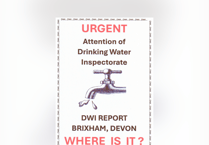IN September the Labour government in Wales took a controversial decision to adopt 20 mph as the default speed limit, writes MP Mel Stride.
The change will no doubt have been made with the best intentions – primarily to make it safer for cyclists and pedestrians – but I am not convinced that it is the right move and would not want to see it introduced in England.
I have no objection to 20 mph limits in certain locations. This could be near a school or in a small village with narrow lanes and high hedges. A fortnight ago I spoke to members of a community speed watch team in our constituency and discussed this very issue. But a blanket 20 mph limit means that motorists have to drop their speed by a third on many roads where driving at 30 mph is safe.
I also fear the change will have a negative impact on the economy, as studies suggest that a 20 mph default speed limit increases journey times by around 5%.
This might not sound much – increasing a 20-minute journey by only 1 minute – but 5% over the course of a year will quickly add up. For instance, someone running a business who spends 10 hours a week driving between customers would lose half an hour a week or just over three working days a year as a result.
In response to the change in Wales, the UK government has issued new measures to support people’s freedom to use their cars and curb over-zealous enforcement measures. Within the 30 point plan are:
► Measures to make it easier to park, such as a new National Parking Platform by autumn 2024 (ending the need to use multiple parking apps).
► Measures to improve traffic flow, such as incentives for utility companies to carry out roadworks at quieter times of day on busy roads, strengthening guidance to make sure bus lanes operate only when buses are running, a £30 million fund to upgrade traffic signal systems and a £20 million fund to utilise Artificial Intelligence to optimise traffic flow in city centres.
► Measures to support the transition to zero emission driving, such as speeding up the approvals process for the installation of Electric Vehicle charge points and widening the eligibility of EV charge points grants.
► Measures to tackle inconsiderate driving, such as new noise cameras to target unacceptable vehicle modifications.
These measures follow the Chancellor’s 5p cut in fuel duty (saving the average driver £100 a year) and an additional £200 million in capital funding to help fund vital highways maintenance, such as tackling potholes. Devon is receiving the largest share of any UK authority with £9.4 million.
In a rural constituency like Central Devon, where a car is essential for the vast majority of us to get to work, access training or education, and use key services, I want life to be made easier for motorists, not more difficult.
► More from Mel here or follow him on X (Twitter) @MelJStride.



-Beaver-Trust.jpeg?width=209&height=140&crop=209:145,smart&quality=75)

Comments
This article has no comments yet. Be the first to leave a comment.